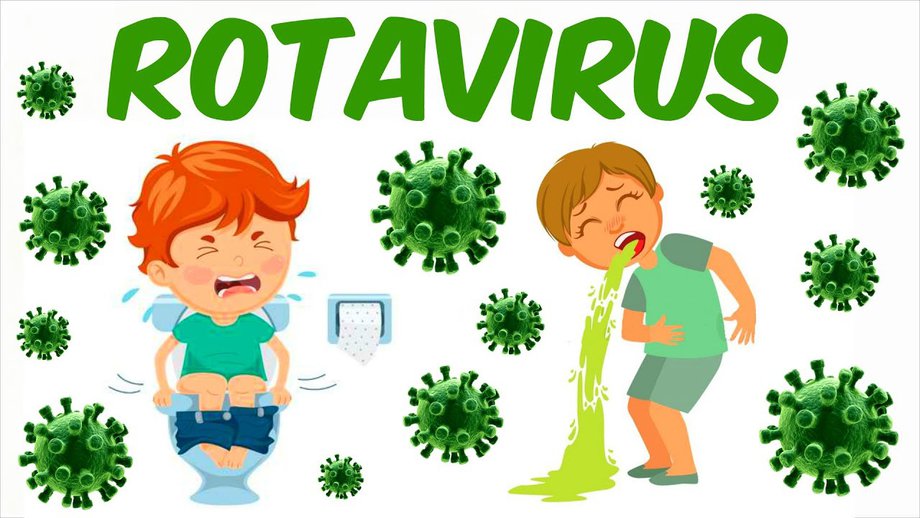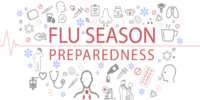Traveler’s Guide to Rotavirus: Risks, Precautions, and Traveling With Children

Are you planning a trip with your children?
Before you set off, it’s important to be aware of the risks and precautions associated with rotavirus.
This traveler’s guide will provide you with essential information to protect your family.
Learn to recognize the symptoms, understand the causes, and discover the necessary precautions to prevent rotavirus infection while traveling.
With vaccination recommendations and special considerations for traveling with children, this guide will ensure a safe and enjoyable journey for you and your loved ones.
Key Takeaways
- Rotavirus primarily affects infants and young children, so parents should be especially cautious when traveling with children.
- Practicing good hand hygiene, avoiding contaminated food and water, and getting vaccinated are crucial in preventing rotavirus infection.
- It is important to check the vaccination status before travel and seek medical help if symptoms occur during travel.
- Rotavirus is a significant public health concern globally, causing thousands of deaths and hospitalizations annually, particularly in developing countries with poor sanitation and hygiene practices.
Symptoms and Signs of Rotavirus Infection
If your child has diarrhea and vomiting, they may be showing symptoms of a rotavirus infection. Rotavirus is a highly contagious virus that primarily affects infants and young children. It is responsible for causing severe diarrhea and vomiting, leading to dehydration and potential hospitalization.
Prompt diagnosis and treatment are crucial in managing the infection. Doctors can diagnose rotavirus through stool sample analysis. Treatment mainly involves rehydration to prevent dehydration and managing the symptoms. In severe cases, hospitalization may be required.
Globally, rotavirus is a significant public health concern, causing over 200,000 deaths and millions of hospitalizations annually, especially in developing countries. Vaccines have been developed to prevent rotavirus infection, and their widespread use has significantly reduced the global impact of the disease.
It is essential to follow proper hygiene practices and seek medical attention if your child exhibits symptoms of a rotavirus infection.
Understanding the Causes of Rotavirus
To understand the causes of rotavirus, you should be aware of how the virus spreads and the common sources of contamination. Here are four important things to know:
- Transmission Methods: Rotavirus can spread through direct contact with an infected person or by touching contaminated surfaces. It can also be transmitted through the consumption of contaminated food or water.
- Global Prevalence: Rotavirus is a highly contagious virus that affects people of all ages worldwide. It is especially common in developing countries with poor sanitation and hygiene practices.
- Fecal-Oral Route: The virus primarily spreads through the fecal-oral route, meaning that it is passed from one person to another through contact with fecal matter.
- Person-to-Person Contact: Close contact with an infected person, such as hugging or handshaking, can also lead to the transmission of rotavirus.
Risk Factors for Rotavirus Infection in Travelers
Understanding the risk factors for rotavirus infection in travelers is essential for preventing the spread of the virus.
When traveling, there are certain factors that increase your chances of contracting rotavirus. The most common risk factor is visiting areas with poor sanitation and hygiene practices. This includes developing countries or areas with limited access to clean water and proper sanitation facilities.
Another risk factor is being in close contact with infected individuals, especially children. Since rotavirus is highly contagious, being around someone who is infected greatly increases your chances of getting the virus.
To prevent rotavirus infection while traveling, it is important to take precautionary measures such as practicing good hand hygiene, avoiding contaminated food and water, and getting vaccinated.
In case of infection, treatment options include rehydration therapy to prevent dehydration and medication to alleviate symptoms.
Preparing for Travel: Vaccination Recommendations
When preparing for your trip, make sure you check the vaccination recommendations to protect yourself from potential illnesses. Vaccines are an important tool in preventing diseases while traveling.
The effectiveness of vaccines can vary, so it’s crucial to follow the recommended ages for vaccination. Different vaccines are recommended for different age groups, so it’s essential to consult with a healthcare professional to understand which vaccines you need.
Vaccine effectiveness can also depend on factors such as the individual’s health and the specific strain of the virus. It’s important to stay up to date with vaccinations, as they play a significant role in safeguarding your health during your travels.
Essential Precautions to Prevent Rotavirus Infection
It’s crucial for you to follow the recommended vaccination schedule to protect against rotavirus infection.
However, in addition to vaccination, there are other essential precautions you should take to prevent the spread of rotavirus.
First and foremost, maintaining good hygiene practices is key. Make sure to wash your hands frequently, especially before meals and after using the bathroom.
Additionally, avoid close contact with individuals who are sick or have recently had a rotavirus infection.
When it comes to food safety precautions, be cautious about what you eat and drink. Only consume food that has been properly cooked and avoid raw or undercooked items.
It’s also important to drink clean and safe water, either by boiling it or using a reliable water purification method.
Managing Rotavirus Infection While Traveling
To manage rotavirus infection while traveling, it’s important to stay hydrated and seek medical attention if symptoms worsen. Rotavirus can cause severe diarrhea and vomiting, leading to dehydration. Here are some tips to help you manage symptoms and find the right treatment options:
- Stay hydrated by drinking plenty of fluids, such as water, oral rehydration solutions, and clear broths.
- Take over-the-counter medications like anti-diarrheal drugs to alleviate symptoms, but consult a healthcare professional before using them, especially for children.
- Follow a bland diet consisting of easy-to-digest foods like rice, toast, and bananas.
- Avoid foods that may worsen symptoms, such as spicy or fatty foods.
- Seek medical attention if symptoms persist or worsen, as severe cases might require hospitalization.
Traveling With Children: Special Considerations for Rotavirus
Special considerations should be made when traveling with kids to ensure their safety and well-being in relation to rotavirus. Traveling with infants, in particular, requires extra attention to hygiene practices to prevent the spread of the virus. Here are some important tips to keep in mind:
| Hygiene Practices | Recommendations |
|---|---|
| Frequent Hand Washing | Encourage everyone to wash their hands regularly, especially before eating or preparing food. Use soap and water, or an alcohol-based hand sanitizer. |
| Clean and Disinfect | Keep surfaces clean and disinfect frequently touched objects, such as toys, strollers, and high chairs. Use disinfectant wipes or a solution of water and bleach. |
| Safe Food and Water | Ensure that the food and water consumed by your child are safe. Avoid tap water, raw or undercooked foods, and street vendors. |
| Vaccination | Make sure your child is up to date with their rotavirus vaccination. Consult with your pediatrician before traveling to ensure they have received the necessary doses. |
Seeking Medical Help: When to Consult a Doctor
If you’re experiencing severe symptoms such as persistent vomiting or dehydration, it’s important to consult a doctor for medical assistance. When it comes to rotavirus, seeking medical help is crucial in certain situations.
If your child is showing signs of severe dehydration, such as sunken eyes, dry mouth, or decreased urine output, it’s important to seek immediate medical attention. Additionally, if your child has blood in their stool, a high fever, or is unable to keep any fluids down, it’s essential to consult a doctor.
When it comes to treatment options, there is no specific cure for rotavirus, but doctors may recommend supportive measures such as rehydration therapy and pain relief medications to manage symptoms.
Always remember to reach out to a medical professional if you’re unsure or concerned about your child’s condition.
Frequently Asked Questions
How Long Does It Take for Symptoms of Rotavirus Infection to Appear After Exposure?
After exposure to rotavirus, symptoms can take around 1-3 days to appear. Early detection is crucial for managing the infection. Keep an eye out for signs like diarrhea, vomiting, and fever.
Are There Any Natural Remedies or Alternative Treatments for Rotavirus Infection?
There aren’t any natural remedies or herbal treatments for rotavirus infection. It’s best to consult a healthcare professional for appropriate medical advice and treatment options.
Can Adults Also Get Infected With Rotavirus While Traveling?
Yes, adults can get infected with rotavirus while traveling. Rotavirus transmission can occur through contaminated food, water, or surfaces. It is important to take precautions such as hand hygiene and avoiding raw or undercooked food.
Is It Safe to Breastfeed a Baby With Rotavirus Infection?
Yes, it’s safe to breastfeed a baby with a rotavirus infection. Take precautions like washing hands and sanitizing surfaces. Treatment options include oral rehydration solution and, in severe cases, hospitalization.
Are There Any Specific Countries or Regions Known for Higher Incidence of Rotavirus Infection?
There are specific countries or regions known for higher incidence rates of rotavirus infection. It’s important to be aware of this when planning your travels and take necessary precautions to keep yourself and your children safe.









